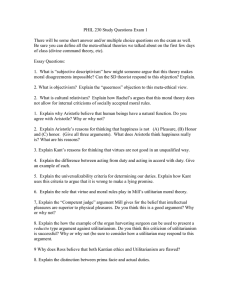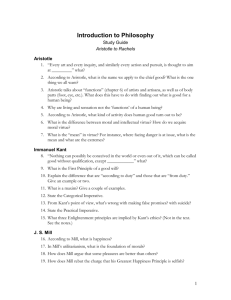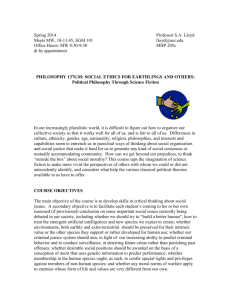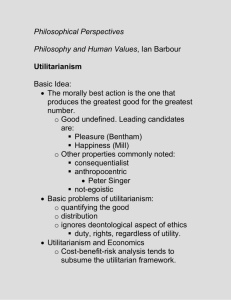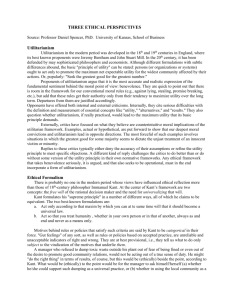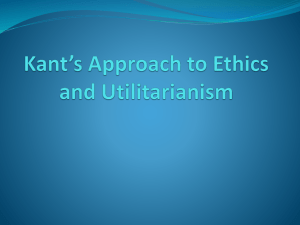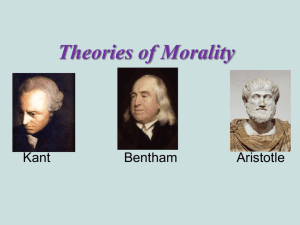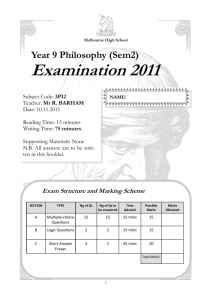Ethics Test 2 Study Guide 3/20/15 Moral dilemmas What is the
advertisement
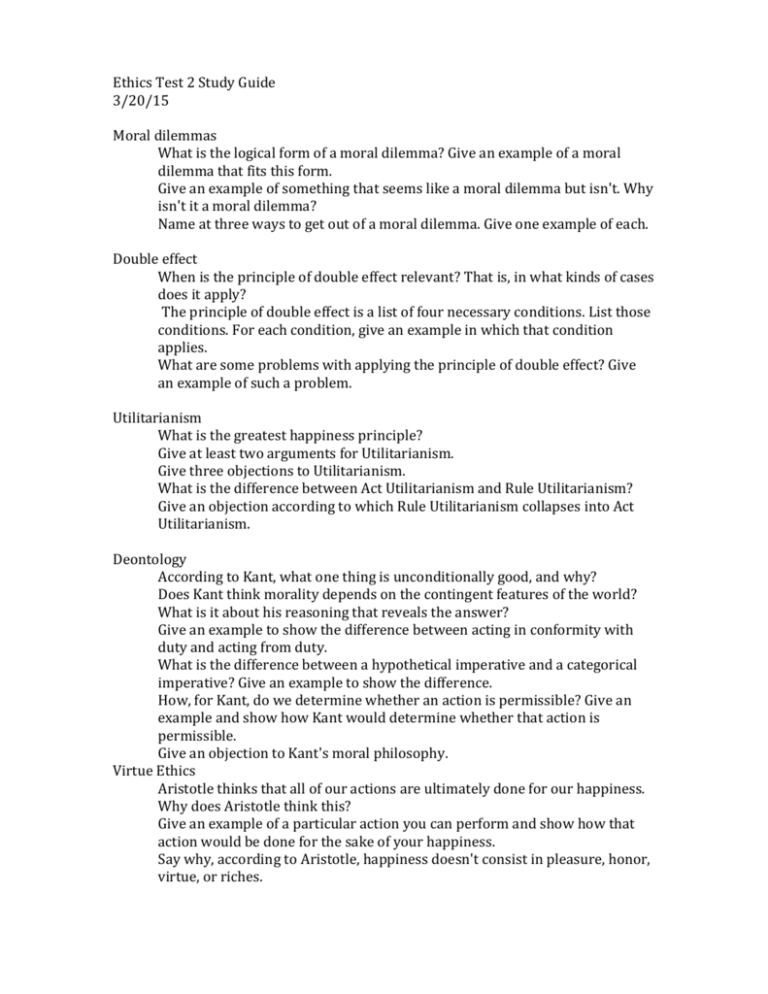
Ethics Test 2 Study Guide 3/20/15 Moral dilemmas What is the logical form of a moral dilemma? Give an example of a moral dilemma that fits this form. Give an example of something that seems like a moral dilemma but isn't. Why isn't it a moral dilemma? Name at three ways to get out of a moral dilemma. Give one example of each. Double effect When is the principle of double effect relevant? That is, in what kinds of cases does it apply? The principle of double effect is a list of four necessary conditions. List those conditions. For each condition, give an example in which that condition applies. What are some problems with applying the principle of double effect? Give an example of such a problem. Utilitarianism What is the greatest happiness principle? Give at least two arguments for Utilitarianism. Give three objections to Utilitarianism. What is the difference between Act Utilitarianism and Rule Utilitarianism? Give an objection according to which Rule Utilitarianism collapses into Act Utilitarianism. Deontology According to Kant, what one thing is unconditionally good, and why? Does Kant think morality depends on the contingent features of the world? What is it about his reasoning that reveals the answer? Give an example to show the difference between acting in conformity with duty and acting from duty. What is the difference between a hypothetical imperative and a categorical imperative? Give an example to show the difference. How, for Kant, do we determine whether an action is permissible? Give an example and show how Kant would determine whether that action is permissible. Give an objection to Kant's moral philosophy. Virtue Ethics Aristotle thinks that all of our actions are ultimately done for our happiness. Why does Aristotle think this? Give an example of a particular action you can perform and show how that action would be done for the sake of your happiness. Say why, according to Aristotle, happiness doesn't consist in pleasure, honor, virtue, or riches. What two kinds of virtue does Aristotle think there is? What is the difference? What is Aristotle's definition of moral virtue? Give an example of a virtue, and explain how it can achieve the mean between an excess and a defect. Does Aristotle think I should experience every emotion moderately all the time? If not, what does Aristotle think achieving the mean is? Roughly, Aquinas thinks that all beings, intelligent or not, act for God as their ultimate end. Why does he think this?
